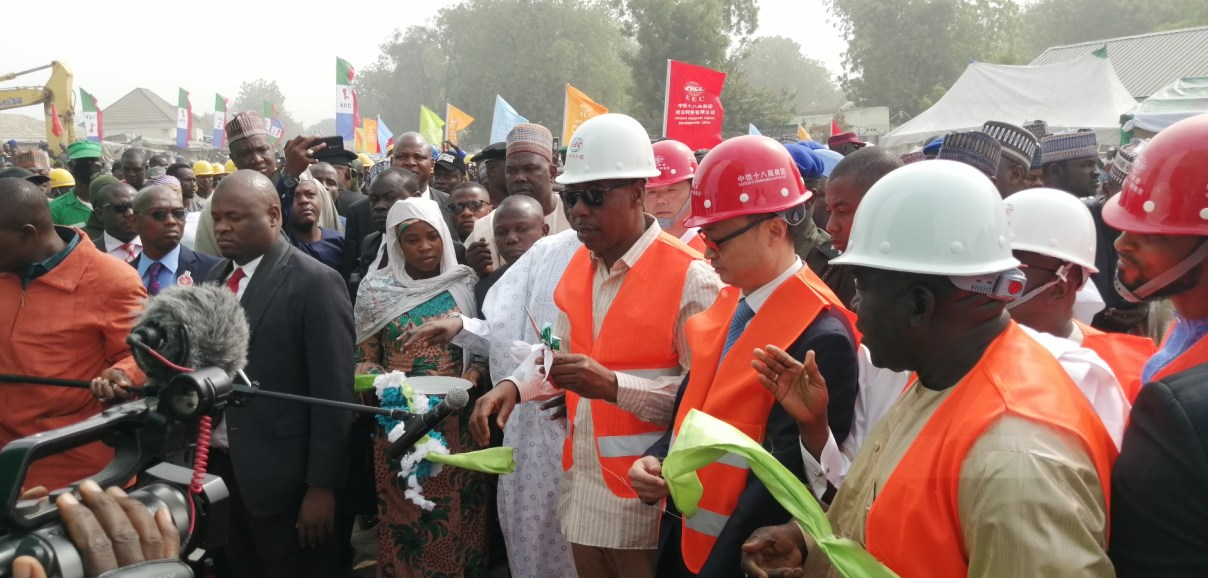Borno begins construction of North-east’s first flyover bridge
Borno State’s governor, Babagana Zulum, on Monday, flagged off the construction of an overhead bridge in Maiduguri, that would become the first of its kind in Northeast Nigeria.
Previously, Kano and Kaduna were the only states of the 19 northern states of Nigeria that had flyovers in their capital cities.
The overhead bridge construction contract was awarded to a Chinese construction company, Eighteenth Engineering Company (EEC), at the cost of N4.2 billion.
In June, Mr Zulum announced that his new government would be constructing two overhead bridges to ease traffic in Maiduguri.
The Commissioner for Works, Yerima Saleh, said the entire overhead bridge was designed to ease the “notorious gridlock in the Customs House”, a roundabout that links the city to international highways leading to Cameroon and parts of central Africa.
Mr Saleh, an architect, said the overbridge is expected to be completed within 18 months. He said that there was no provision for any form of variation to the cost of the project.
The governor, while flagging off the construction, said a take-off grant of N1.3 billion has been paid to EEC on 23 December 2019.
He said no amount of hostilities from Boko Haram would deter the state government from carrying out it’s mapped out development programs.
“We are going to deliver all our campaign promises to our people, Insha Allah.
“This should send a message to all the distracting elements that we will not be cowered or intimidated into abandoning the developmental path that we have taken.”
The governor said the overhead bridge, just like any other road network projects embarked by his administration are designed to ease the movement of the populace and the workforce in the state.
He said he would be awarding the construction of a second overhead bridge that will be erected at the city’s central location, known as Post Office, by the end of this year or early 2021.
Maiduguri’s population has in the last six years doubled due to the influx of people displaced from their rural settlements by the Boko Haram conflict. Their presence has since been telling on the public infrastructure, including the highways.




